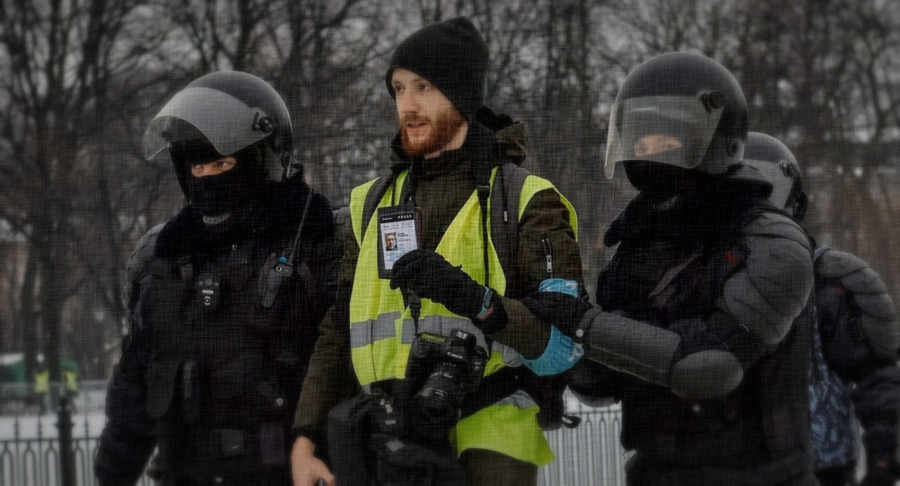COVID Censorship Emerges as a New Threat to Freedom of Speech
The organization Reporters Without Borders (RSF) has published its annual World Press Freedom Index. Restrictions introduced under the pretext of fighting the coronavirus, increased attacks on journalists covering mass protests, and the war in Nagorno-Karabakh—which claimed the lives of at least seven journalists—are the main reasons why the Eastern Europe and Central Asia region ranked second to last in the global press freedom index.
“This year’s index, which annually assesses the state of press freedom in 180 countries and territories, shows that journalism—perhaps the best vaccine against the virus of disinformation—is completely blocked or faces serious obstacles in 73 countries and is restricted in 59 others,” the organization’s report states.
The report notes that some countries used the COVID-19 pandemic as a reason to limit journalists’ access to information sources and on-the-ground reporting. For example, in Iran (ranked 174th in the press freedom index), authorities tightened control over news coverage and prosecuted journalists to prevent the media from reporting the true number of COVID-19 deaths. In Egypt (166th place), the government banned the publication of any pandemic statistics not provided by the Ministry of Health. In Zimbabwe (130th place), journalist Hopewell Chin’ono was arrested shortly after publishing an investigation into inflated invoices from companies supplying medical equipment.
Russia once again appeared on the list of countries that strictly censor the information space. In the new ranking, it dropped one position and is now in 150th place. RSF notes that authorities used their repressive apparatus to limit media coverage of protests in support of Kremlin opponent Alexei Navalny.
Belarus ranked 158th, falling five positions. The report’s authors note that Belarusian journalists faced “unprecedented repression” as authorities tried to suppress coverage of mass street protests that erupted in response to the presidential election results.
Global Decline in Press Freedom
Overall, RSF notes a growing trend of press freedom restrictions in various countries around the world, including some democracies. For example, the United States dropped one position. The report’s authors highlight that Donald Trump’s last year in the White House saw a record number of attacks on journalists (about 400) and arrests of media representatives (130).
This year, only 12 out of 180 countries in the index (7%) offer a favorable environment for journalism, compared to 13 countries (8%) last year. Norway remains the easiest country for journalists to work in, holding the top spot in the ranking. Finland maintained its second-place position, followed by Sweden.
Countries with the worst conditions for journalists include China (177th), Turkmenistan (178th), North Korea (179th), and Eritrea (180th). RSF describes the last three as totalitarian states. “Regardless of their continent, these countries maintain absolute control over all news and information, allowing the first two to claim they had no COVID-19 cases, and the third to remain completely silent about the fate of 11 journalists arrested 20 years ago—some of whom were reportedly held in metal containers in the middle of the desert,” the report notes.
Among Central Asian republics, only Kyrgyzstan, ranked 79th, is in the upper half of the list. Kazakhstan rose two positions to 155th place, Uzbekistan dropped one to 157th, and Tajikistan is at 162nd.



